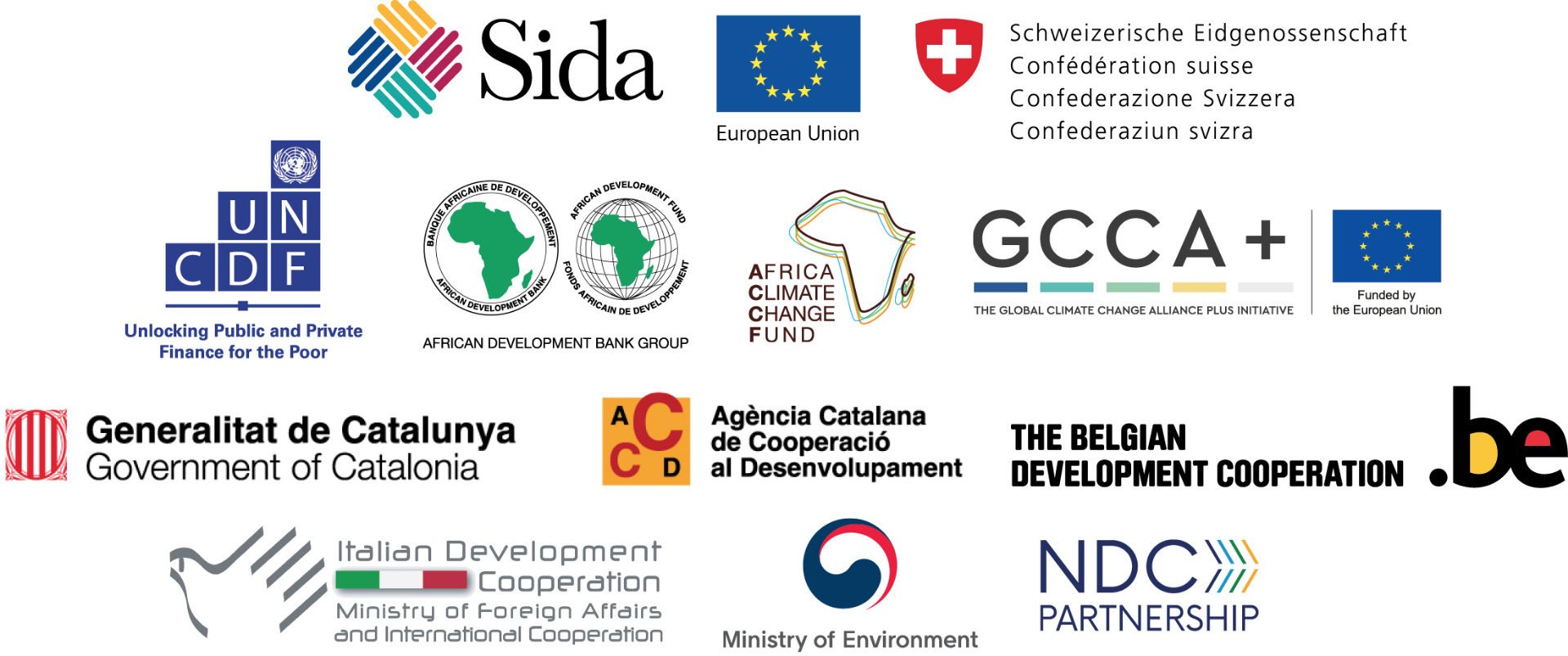Mainstreaming climate change adaptation in District Medium Term Development Plans
Article and Photos by Elorm Ntumy, UNCDF-LoCAL Ghana 2021
For more information on GrEEn and to find out about LoCAL, read our online brochure or download the brochure.
Tags
Under the Boosting GrEEn Employment and Enterprise Opportunities in Ghana (GrEEn) Project, all 260 Metropolitan, Municipal and District Assemblies (MMDAs) in Ghana are set to mainstream climate change adaptation in their development plans and budget systems to increase awareness and response to climate change adaptation at the local level across the country. GrEEn uses the unique UNCDF-LoCAL Facility and its internationally recognized tools to channel climate finance to the local government levels.
Working in collaboration with the National Development Planning Commission (NDPC), UNCDF held a series of trainer of trainers workshops for target participants (Regional Economic Planning Officers, Regional Directors, Land Use and Spatial Planning Authority and Regional Budget Directors) from all Regional Coordinating Councils from the Southern and Northern sectors of the country. The main objective of the trainings that took place in Ashanti and Aburi region was to equip the regional level officials with the required knowledge to support the MMDAs to mainstream climate change adaptation into their medium-term development plans (MTDPs) and annual budgets.
Participants were trained on UNCDF’s Assessing Climate Change Adaptation Framework (ACCAF), which is a unified set of guidelines to ensure adaptation aims of LoCAL are being achieved. The ACCAF monitoring and evaluation framework focuses on the adaptation elements of the LoCAL mechanism. The participants are expected to further train their colleagues at their various districts and municipals under their jurisdiction, in order to ensure the mainstreaming of climate change adaptation considerations in the subnational development planning processes are achieved.
Angela Yayra Kwashie, the Technical Specialist, (Local Government Finance) of UNCDF’s GrEEn Project explained that, “the LoCAL facility implemented by UNCDF aims to promote climate change-resilient communities and local economies by increasing investments in climate change adaptation at the local level.
Angela Kwashie during the NDCP workshop held in Aburi, Ghana on the 2nd August 2021
"It has been observed that the mainstreaming of climate change into districts’ medium-term development plans has been limited due to many factors such as a limited understanding of climate change and little to no access to tools to support the integration of climate change adaptation into development planning at district and regional levels,” Angela said.
Speaking at the workshop, Winfred Nelson, a Chief Analyst with NDPC mentioned that as a climate sensitive country, with a large percentage of the population employed in the agricultural sector, slight changes in the weather are felt by farmers across the country such as irregular rainfall patterns as such, it is important climate change adaptation is taken into consideration during the planning, budgeting and implementation of development plans at the local level, to adapt to the impacts of climate change on food systems in the country.
Speaking about measures to monitor the various development plans to ensure compliance to the inclusion of climate change adaptation, Winfred Nelson said, “At the NDPC, we are responsible for vetting all development plans, so we have developed a checklist and one of the key things we are looking out for is climate change adaptation. So, all 260 plans will be vetted to ensure that all plans capture climate change issues and those that do not meet the criteria, would not be approved.”

"We are also working with the LoCAL facility implemented by UN Capital Development Fund to do active follow ups with some pilot districts to ensure that all the necessary checks and systems are in place to ensure compliance”.
Benjamin Attitse, the Regional Budget Analyst for the North East Region of Ghana, a participant at the workshop remarked on the realities being faced by Ghana with regards to the effects of climate change, and it is important for Ghana to put in place adaptation measures to deal with its effects.
“Because of the nature of my region, the effects of climate change are more pronounced than in other parts of the country. In my region, we have floods that are sweeping away entire communities, biodiversity loss, droughts in certain parts and eventhough many might not be aware that these conditions are as the direct effects of climate change, everyone is dealing with the consequences,” he said.
“Previously the focus was on mitigation but we now have to adapt so the effects and consequences are not so dire on our day to day activities. We have to embrace all the adaptative measures and this is the responsibility of everyone to deal with the realities of climate change,” he said.
Speaking on how he would disseminate the knowledge he has learnt to the various officers at the local level, he mentioned that since they would be holding meetings with stakeholders at the local level and they would be having workshops to share the knowledge learned with them and ensure climate change adaptative measures would be implemented at the local level.
Over 50 participants attended the trainer of trainer workshops that were held on the 26th of July in the Ashanti Region for the Northern Sector and in Aburi on the 2nd August for the Southern Sector.
STAY CONNECTED
Join the LoCAL Network
Visit our site sections
Get LoCAL news in your mailbox
Enter your email below to subscribe to our newsletter
Thanks to our partners:

